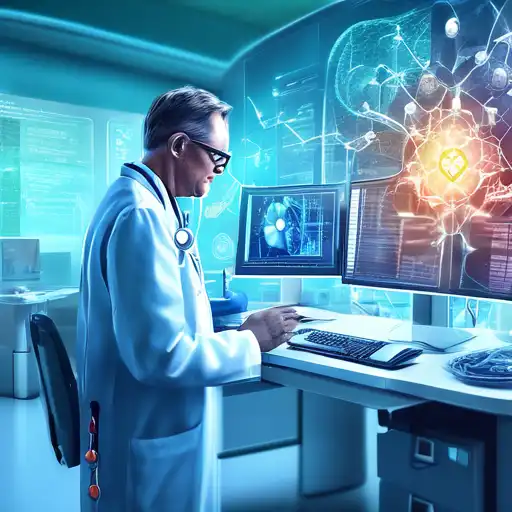The Revolutionary Impact of Data Science on Healthcare
In the modern era, data science has emerged as a cornerstone of innovation across various sectors, with healthcare being one of the most significantly impacted. The integration of data science into healthcare is revolutionizing the way medical professionals diagnose, treat, and prevent diseases, offering unprecedented opportunities for improving patient outcomes and operational efficiency.
Enhancing Diagnostic Accuracy
Data science technologies, including machine learning and artificial intelligence, are enabling healthcare providers to achieve higher levels of diagnostic accuracy. By analyzing vast datasets, these technologies can identify patterns and anomalies that may elude human observation, leading to earlier and more accurate diagnoses of conditions such as cancer, diabetes, and heart disease.
Personalized Medicine
One of the most promising applications of data science in healthcare is the development of personalized medicine. By leveraging genetic information and patient data, healthcare providers can tailor treatments to the individual characteristics of each patient, significantly improving the effectiveness of therapies and reducing the risk of adverse reactions.
Operational Efficiency and Cost Reduction
Data science is also transforming the operational aspects of healthcare. Predictive analytics can optimize hospital resource allocation, reduce wait times, and improve patient flow. Furthermore, data-driven insights are helping healthcare organizations reduce costs by identifying inefficiencies and streamlining processes.
Preventive Healthcare
With the advent of wearable technology and mobile health apps, data science is playing a pivotal role in preventive healthcare. These tools collect real-time health data, enabling individuals and healthcare providers to monitor health indicators and intervene before serious conditions develop.
Challenges and Ethical Considerations
Despite its potential, the integration of data science into healthcare is not without challenges. Issues such as data privacy, security, and ethical use of patient information must be carefully managed to ensure that the benefits of data science are realized without compromising patient trust.
In conclusion, data science is fundamentally changing the landscape of healthcare, offering innovative solutions to longstanding challenges. As technology continues to evolve, the potential for data science to further enhance healthcare outcomes is limitless. For more insights into the intersection of technology and healthcare, explore our technology in healthcare section.
